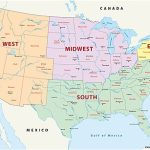
Britons cut back on food shopping and dining out last month, but spent more on streaming subscriptions.
Card spending grew by only 4 per cent compared with last March, less than half the 9.2 per cent inflation rate, as people tried to cut their outgoings, according to figures from Barclays.
However, spending on digital content and subscriptions was up 4.1 per cent, its highest growth since October, probably driven by series premieres of popular shows such as Succession, Ted Lasso and The Mandalorian. Households had cut back on streaming to cope with the cost of living crisis.
Both the season premieres of Succession, the HBO drama about a dysfunctional media dynasty, and Ted Lasso, the Apple TV comedy series about an American coach in English football, drew in a record number of viewers. Spending on groceries was up by 7.1 per cent, below the latest Office for National Statistics food price inflation rate of 18.2 per cent.
Nearly nine in ten shoppers said they were worried about rising food prices, while six in ten said they had found ways to cut the cost of their weekly shop. Half said they were cutting down on luxuries and one-off treats, while a third reported using food vouchers or were planning meals to avoid waste.
Spending on home improvement and DIY supplies was up 4.3 per cent month on month, as people started to spruce up their homes and gardens in preparation for the summer. Utilities spending grew by 39.3 per cent on last year, with the cold weather prompting households to leave their heating on.
Overall, 54 per cent of consumers said they were cutting down on discretionary spending, especially eating out and buying new clothes and accessories, according to the Barclays report, which combines hundreds of millions of customer transactions with a 2,000-person consumer research survey. Gen Z consumers spent more of their income on discretionary purchases compared with those in older age groups, and spent twice as much on takeaways. However, they spent 41 per cent less on essential items, which Barclays said may reflect that people in the 16-24 age group are more likely to live with their parents.
Only 35 per cent of Britons surveyed said they planned to loosen their purse strings over the coronation bank holiday weekend in May. Eleven per cent planned to buy food and drink for friends or family and just 8 per cent were counting on spending money in bars and pubs.
With less than a month to go before the King’s coronation, only 245 street parties or private events have been registered, according to the government coronation website.
About 16,000 Platinum Jubilee street parties were held last year, with Barclaycard reporting a 41.5 per cent rise in spending at restaurants over the bank holiday weekend compared with the same period the previous year.
Esme Harwood, a director at Barclaycard, said: “The below-inflation rise in grocery spending shows that Brits are still trying their hardest to shave money off their weekly shop as energy bills continue to rise. Cutbacks are also impacting restaurants, with a number of cash-strapped consumers even avoiding social plans that involve meals out.”
Harwood described the coronation weekend predictions as “lacklustre”.
Overall consumer spending has been better than expected this year, helping to improve the UK’s economic outlook after warnings of recession.
The energy price cap and low unemployment have helped to ease inflationary pressure, as have the savings many people built up due to the pandemic.
Separate figures from the British Retail Consortium showed a 4.9 per cent climb in retail sales last month compared with March last year, above the 12-month average of 2.1 per cent.
Read more:
Hard-up Britons cut back on food bills but spend more on streaming TV






